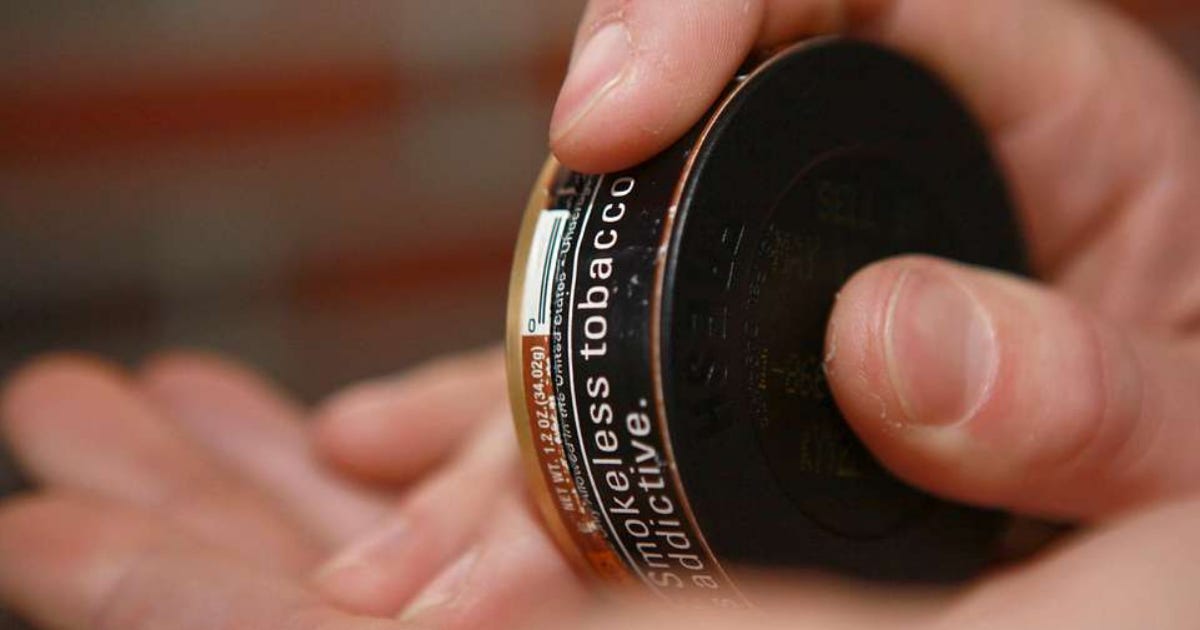Blanket tobacco bans create space for criminal enterprise
Illegal tobacco and nicotine products in Canada pose public health risks due to absent age verification, tampered vapes, and lack of quality control and safety regulations.
Illegal tobacco and nicotine products in Canada pose public health risks due to absent age verification, tampered vapes, and lack of quality control and safety regulations.
Danny Fournier, an expert on the illicit tobacco industry, is sounding the alarm that blanket bans on the industry are leading consumers to contraband markets, leaving consumers at the mercy of criminal manufacturers who are not bound by any safety regulations.
In an interview with True North, Fournier, a 25-year RCMP veteran and now senior manager of illicit trade prevention for Rothmans Benson and Hedges Canada, listed a variety of issues that come with the illicit trade of tobacco products that Canadians should be concerned about.
“Contraband tobacco products are unregulated, so they escape any oversight from the government. From a purely public health perspective, they don't follow the same guidance or the mandatory manufacturing processes that Health Canada mandates,” Fournier told True North.
Blanket bans on nicotine products lead to public health and safety concerns
Completely unregulated contraband tobacco, found online or at Indigenous reserves, often lacks the health warnings consumers would see from legitimate tobacco companies.
Fournier said about 40 per cent of the tobacco market is contraband products, meaning 40 per cent of the market is by default not subject to public health objectives or initiatives.
“Any outcomes you're trying to achieve are doomed to fail if you cannot reach 40 per cent of the consumers. There is no silver bullet that will fix it,” Fournier said. “That needs to be a coordinated approach on all fronts. The most important approach is education and awareness, followed by enforcement.”
He pointed to a blanket ban in Quebec on flavoured vape products. The ban was placed on the products primarily because a younger cohort primarily purchases them. He said the availability of those products, which are unbound by health and safety regulations, to the same young consumer base is a recipe for disaster.
“The ban on flavour without following up with any interdiction, enforcement and education is only going to fail,” he said.
Some products, such as open-box vape cartridges, pose an even greater risk than traditionally sold closed cartridge or pod vaping products. Fournier said the liquid in an open-box vape cartridge can be manipulated, potentially making it more dangerous than the traditionally regulated product.
“If you're a government considering implementing a ban, in my experience, bans do not work,” he said. “The first thing would be to consult with other provinces that have tried it. Quebec, exactly, is an example of a ban not working.”
He said criminals don’t check age ID either, giving underage consumers access to potentially more dangerous products. He said it’s as simple as checking a box on some contraband websites that “confirms” the user is 18. Canada Post could deliver the contraband directly to the child or teen's door.
Combustible cigarettes face a similar issue in the unregulated market.
Fournier said he has visited contraband tobacco manufacturing facilities that had dirt floors and zero regulatory oversight.
“I can tell you that the quality assurance aspect is not present at all. So from a public health perspective no cigarette is a good cigarette,” Fournier said. “Whether it's combustible, legal or illegal, (it’s about) what goes into the manufacturing process. I have seen with my own eyes the illegitimate manufacturers…it's simply not comparable to any legitimate manufacturer.”
Health Canada mandates that tobacco products have reduced ignition propensity, meaning the product cannot ignite itself without a human inhaling to continue its burn.
Due to the absence of regulation, contraband combustible products often will burn past the filter, creating a larger risk of fires if someone falls asleep. Without restrictions on ignition propensity, a discarded contraband tobacco product is also more likely to cause wildfires.
He said there needs to be national coordination to stem the dangers the illicit tobacco trade could cause.
“The RCMP is doing well in certain regions with regards to enforcing contraband tobacco, but they have dropped out of their mandate. They used to have national coordination between provinces to make sure that actions are concerted and coordinated,” he said. “We need that leader back, if you will. And it should be the RCMP.”
Fournier added that organized crime, being funded in part by its illicit trade of tobacco, also makes the communities it operates in less safe. With organized crime comes other crimes. He said many people are unaware that they may be funding organized crime by purchasing illicit tobacco.
Kory McDonald, the head of external affairs at RBH, told True North that the leading reason for purchasing from a contraband market is the price difference. She said high taxes and regulation costs often make legitimate tobacco products more expensive, and therefore less appealing.





